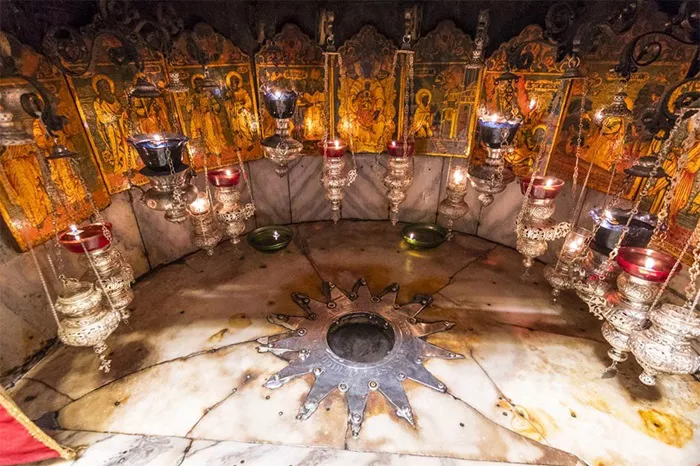Jesus Christ is one of the most influential figures in history. His teachings have shaped religions, cultures, and societies for over two millennia. To understand Jesus’s impact, it’s essential to know about his origins. This article explores where Jesus is originally from, delving into historical, biblical, and geographical contexts.
The Birthplace of Jesus
Bethlehem: The Traditional Birthplace
The New Testament Gospels of Matthew and Luke state that Jesus was born in Bethlehem. This small town is located about six miles south of Jerusalem. According to the Gospels, Mary and Joseph traveled to Bethlehem due to a Roman census requiring individuals to return to their ancestral towns. Jesus was born in a manger because there was no room at the inn.
Significance of Bethlehem
Bethlehem holds great significance in Jewish prophecy. The Old Testament prophet Micah foretold that a ruler of Israel would come from Bethlehem (Micah 5:2). This prophecy is one reason why Jesus’s birth in Bethlehem is significant to Christians, as it fulfills the ancient prophecy.
Historical and Archaeological Evidence
Archaeological evidence supports Bethlehem’s existence as a small Judean town during the time of Jesus. However, there is limited physical evidence specifically confirming the birth of Jesus in Bethlehem. Most historical information comes from the biblical texts.
Nazareth: Jesus’s Hometown
Growing Up in Nazareth
After Jesus’s birth, his family eventually moved to Nazareth, a town in the region of Galilee. Nazareth is located in northern Israel, about 65 miles north of Jerusalem. The Gospels describe Jesus growing up in Nazareth, working as a carpenter, and living a humble life.
Significance of Nazareth
Nazareth was a small, relatively insignificant town during Jesus’s time. Its obscurity is highlighted in the Gospel of John when Nathanael asks, “Can anything good come out of Nazareth?” (John 1:46). Despite its humble status, Nazareth is significant as the place where Jesus spent most of his early life.
Archaeological Discoveries in Nazareth
Modern archaeological excavations in Nazareth have uncovered remains of a small village dating back to the first century. These findings include homes, agricultural terraces, and ancient tombs. These discoveries provide insights into the daily life and environment where Jesus grew up.
Historical and Cultural Context
The Roman Empire’s Influence
Jesus was born during the time of the Roman Empire’s dominance over Judea. The Roman occupation influenced many aspects of daily life, including taxation, law, and cultural practices. Understanding the Roman influence helps contextualize the world in which Jesus lived.
Jewish Traditions and Beliefs
Jesus was born into a Jewish family and community. Jewish traditions, laws, and religious practices were integral parts of his upbringing. The Jewish expectation of a Messiah, or savior, was a significant aspect of the religious landscape during Jesus’s time.
Language and Education
Aramaic was the primary language spoken by Jesus and the people of his region. Hebrew was used for religious texts and rituals. Jesus likely received education in the Hebrew Scriptures, as evidenced by his teachings and knowledge of Jewish law.
See also: WHO IS JESUS BROTHER IN THE CHOSEN?
The Flight to Egypt
Herod’s Decree
According to the Gospel of Matthew, shortly after Jesus’s birth, King Herod the Great ordered the Massacre of the Innocents, the killing of all male infants in Bethlehem. Joseph, warned by an angel in a dream, took Mary and Jesus to Egypt to escape Herod’s decree.
Time in Egypt
The Holy Family’s flight to Egypt is a significant but less documented part of Jesus’s early life. The Gospels do not provide much detail about their time in Egypt. However, it is believed they stayed there until Herod’s death, after which they returned to Nazareth.
Significance of Egypt
Egypt holds historical and symbolic significance in the Bible. It was a place of refuge for the patriarchs and a land of bondage from which the Israelites were delivered. Jesus’s time in Egypt symbolizes a period of refuge and fulfillment of prophecy.
Return to Nazareth
Settling Back in Galilee
After Herod’s death, an angel instructed Joseph to return to the land of Israel. The family settled in Nazareth, fulfilling the prophecy that Jesus would be called a Nazarene. This return marks the beginning of Jesus’s life in Nazareth and his preparation for his public ministry.
Daily Life in Nazareth
Jesus’s daily life in Nazareth likely involved carpentry, as Joseph was a carpenter. This trade provided Jesus with practical skills and a connection to the working-class community. His teachings often used metaphors and parables related to everyday life, reflecting his background.
Jesus’s Public Ministry
Baptism and Wilderness
Around the age of 30, Jesus was baptized by John the Baptist in the Jordan River. This event marked the beginning of his public ministry. After his baptism, Jesus spent 40 days in the wilderness, fasting and facing temptations.
Teaching and Miracles
Jesus’s ministry involved traveling throughout Galilee, Judea, and surrounding regions, teaching about the Kingdom of God, performing miracles, and gathering disciples. His teachings emphasized love, compassion, forgiveness, and social justice.
Jerusalem: The Final Days
Jesus’s ministry eventually led him to Jerusalem, where he faced opposition from religious leaders. His entry into Jerusalem, the Last Supper, his arrest, crucifixion, and resurrection are central events in Christian faith, commemorated during Holy Week and Easter.
Conclusion
Understanding where Jesus is originally from provides insight into his life, teachings, and the historical context of his time. Bethlehem, as his birthplace, fulfills ancient prophecies and holds deep religious significance. Nazareth, his hometown, shaped his early life and experiences. The historical, cultural, and religious contexts of these places enrich our understanding of Jesus Christ’s profound impact on the world.
Jesus’s origins in Bethlehem and Nazareth highlight his humble beginnings and the fulfillment of prophecies. These locations are integral to the narrative of his life and the foundation of Christian belief. As we explore these origins, we gain a deeper appreciation of Jesus’s journey and his enduring legacy.
Related topics:
WHAT EPISODE OF THE CHOSEN IS JESUS BORN?
WHAT NATIONALITY IS JESUS IN THE CHOSEN?
IS THE CHOSEN A TRUE STORY ABOUT JESUS?

